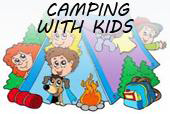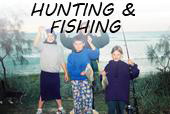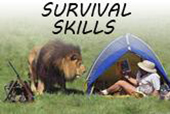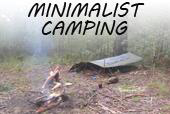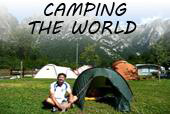When your child attends a summer camp, you are exposing them to many elements that will lead to lifetime memories and friendships. However, a summer camp is not exactly the same as a family camping trip, although it does include some of the same things.
Similarly to an outdoor camping trip, while on a summer camp program your child will spend time outdoors and learn some new skills and socialize. But what is the perfect summer camp for your child? Here are some…
Tips To Help You Choose The Best Program
What Does Your Child Want To Do?
As much as you may want your son or daughter to participate in a camp program that appeals to you, you really need to match the right program to what your child is interested in. If your child wants to make new friends, has an interest in sailing or wants to learn how to swim, these are all clues to help you find the camping program to fit those desires.
Day Camp or Overnight Camp?
A day camp is a great ‘starter’ for your child in that activities take place during the daytime and each night is spent at home. Overnight camps introduce sleeping on site which may or may not interest your child. These provide a little more independence and typically are offered to children 7 years and older.
With Old Friends or to Meet New Friends?
If the camp you choose is local and involves a few of your child’s friends, this may make for some great summertime adventures. However, if you are trying to introduce your child to different settings, and the potential of making new friends, looking outside of your immediate area may bring you the fit you are looking for.
What Is The Camp Focus?
There are essentially two different types of camps. One is the ‘general’ kind where various activities are incorporated into a camp schedule. They include lots of different sports and activities include swimming, athletics, sailing, team sports, arts and crafts courses and skill development. There are also ‘specialty’ camps which focus primarily on a specific theme, such as music, or outdoor activities such as sailing summer camps.
Do Your Homework
Once you have determined which camp is best for your child you will need to learn more about the actual facility. You will want to know such things as:
- the hiring practices used for staffing,
- how many counselors are available for the campers,
- how old the counselors are, and
- how camper conflicts are resolved.
You may also wish to learn about:
- what a typical daily schedule will look like,
- what is on the meal menu,
- should your child take a cell phone, and
- do you need to provide them with some spending money.
All of these questions and more should be answered easily by contacting the specific camp or visiting their website.
Meet And Greet
The last thing to do is to meet the camp organizers. On the first day of camp be sure to meet the camp director and counselors and introduce your child to them as well. This is also a good time to go over anything that you need them to know about your child such as allergies or medications required. You will be able to tell a lot about the operation by doing this.
If your introductions and initial meeting go well, it’s a good sign that you made the right choice for your child. What will be your biggest clue of success is if your son or daughter report back to you with enthusiastic stories after their experience. If they had fun, it will show.
Conclusion
Summer camps can be a great way to get your child out to experience new and exciting things, as well as meet new friends and have the opportunity to learn new skills. And if they express an interest in going again, you may have just started something that will give them great memories that will last a lifetime.



